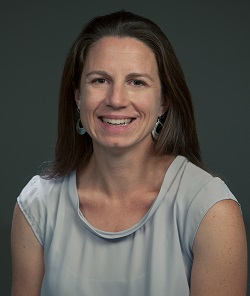Climate Change is History

a Discovery Core Experience
May be taken as either BCORE 110 (Natural Sciences), or BCORE 107 (Social Sciences)
About this course
Have you ever learned something new and wondered, “How did people even figure that out?!” From developing computers, to trying new cooking techniques, to predicting the weather – new knowledge starts with simple questions and thoughtful observations.
Climate change is no different; now one of the fundamental issues of our time, our understanding had to start somewhere. What were the first observations that led to the realization that climate changes over time? What was the first answer to the question, “what is the average global temperature”? How did we learn to study past climate from tree rings or ice cores? What kinds of questions are we still asking and answering as we figure out how to live in a changing climate?
Who should take this course?
There’s a little something for everyone – this class will be part-history, part-science, and a bit of philosophy. You’ll learn about climate science and about how the politics and policies around climate change got to where they are today. You’ll also have a chance to do some exploring about the origins of new discoveries in other areas of interest to you.
What will we do?
We’ll read historical documents, biographies, and current news, look at climate science data and practice evaluating claims, discuss how historical context and perspectives can influence knowledge generation, and do some thinking and writing about what kinds of questions motivate and inspire us individually.
Professor Avery Shinneman (She/Her/Hers)
School of Interdisciplinary Arts & Sciences

About Dr. Shinneman
B.A., Geology and Environmental Studies, Macalester College
Ph.D., Geology, University of Minnesota
I teach environmental science courses that are focused on the process we go through to investigate and begin to understand the environmental systems we live in. My intention is that students leave my courses with a better understanding of both the earth system/process the class is focused on (water resources, geology, etc.) and the way we go about investigating that process. Most of my classes involve individual research, experiential learning at outdoor field sites or local environmental agencies, and significant hands-on problem solving. My main focus is to teach students how to navigate the often messy process of discovery. I believe strongly that many controversies in the public discourse about science, including debates about climate change, evolution, and medicine, stem from the fact that too many people see science as a text book that has already been written instead of as a dynamic process. I want to encourage students to look at science as something they can actively create and evaluate, rather than something that is handed to them as a set of predetermined conclusions. My desire is that each student leaves one of my courses better able to use evidence in decision making, discuss the uncertainties and errors in scientific research, and apply the knowledge of the course to a relevant problem.
Research/Scholarship
My research interests are focused on developing records of recent and long-term changes in the environment, especially in aquatic systems, arising from shifts in climate and land-use. Using biological and geochemical archives in lake sediment cores, I develop reconstructions of paleo-ecological changes. These reconstructions can be used to answer a variety of questions about natural variability in ecological systems, changes in these systems after anthropogenic disturbances, and the efficacy of restoration efforts.
Contact
Email: alcs@uw.edu